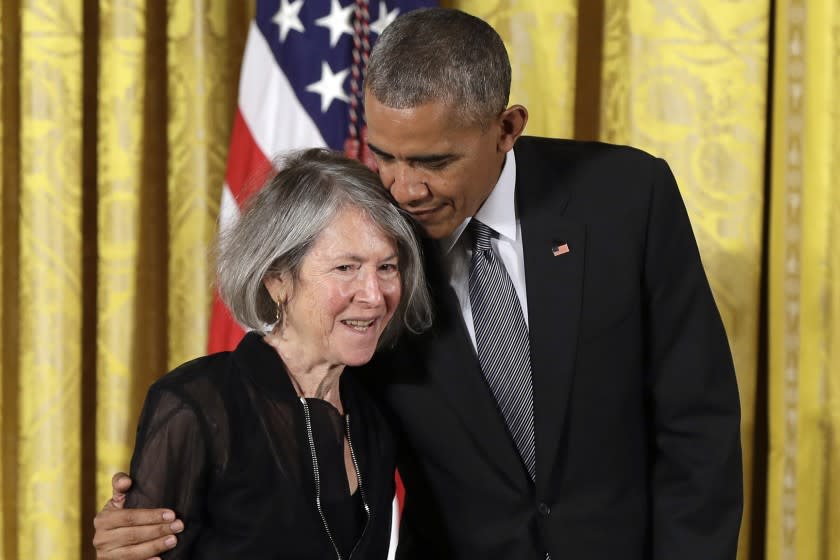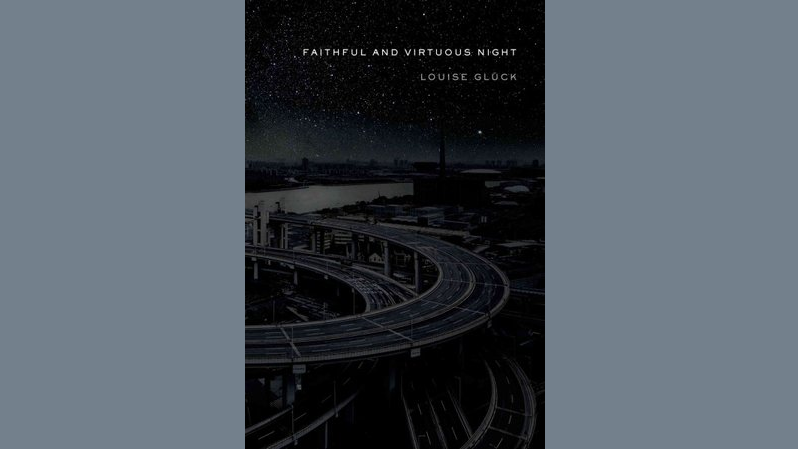Where to start with Louise Glück, winner of the 2020 Nobel Prize in literature

If you buy books linked on our site, The Times may earn a commission from Bookshop.org, whose fees support independent bookstores.
The Swedish Academy has awarded this year's Nobel Prize in literature to Louise Glück, a former U.S. poet laureate.
The 16th woman to win the prestigious prize and the first American woman since Toni Morrison in 1993, Glück is the author of 12 poetry collections and several volumes of essays on literary writing.
“All are characterized by striving for clarity," Anders Olsson, chairman of the Nobel Committee for Literature, said after Thursday’s announcement. "Childhood and family life, the close relationship with parents and siblings is a [theme] that has remained central to her."
Her themes are universal, covering life and death, nature and history, desire and isolation.
“Louise Glück’s voice is unmistakable," Olsson added. "It is candid and uncompromising, and it signals that this poet wants to be understood. But it is also a voice full of humor and biting wit.”
If you're just catching up on a half-century literary career, it might be hard to know where to start. Here's brief primer.
"Faithful and Virtuous Night" (2014)
A National Book Award judge said the collection "emanates from a world where darkness blurs ordinarily sharp edges around the oppositions we summon to think our lives — loss and renewal, male and female, the living and dead."
"Poems 1962-2012” (2012)
The winner of the Los Angeles Times Book Prize in 2012 offers a complete collection of Glück's poems to date, beginning with her debut, "Firstborn" (1968), and running through 2009's "A Village Life." At more than 600 pages, this anthology is a vast landscape into Glück's poetic innovation and her pen's deceptively simple verses that pierce at the heart. Its publication was called "a major event in this country's literature" by the New York Times and underlines Glück's quest to find clarity through words.

"The Wild Iris" (1992)
The Nobel literature committee on Thursday highlighted another poem in this collection, "Snowdrops," documenting "the miraculous return of life after winter." It won Glück the Pulitzer Prize for poetry in 1993.
"Ararat" (1990)
Deemed the most "brutal and sorrow-filled book of American poetry published in the past 25 years" by the New York Times in 2012, "Ararat" is a devastating, intimate and semi-autobiographical window into the life of a family — a collection of poems that captures a mother's struggle with conveying emotion; the death of a newborn sister; a last visit with a dying father ("Terminal Resemblance"); and the challenges of parenthood. Memory and pain are unifying themes, highlighted in poems like "First Memory":
"Long ago, I was wounded. I lived/ to revenge myself/ against my father, not/ for what he was — /for what I was: from the beginning of time,/ in childhood, I thought/ that pain meant/ I was not loved./ It meant I loved."
"The Triumph of Achilles" (1985)
It won the National Book Critics Circle Award for poetry in 1985.
"The voice in Glück’s poems reassures us that poetry isn’t and never has been explanatory at heart, but can become a wonder of spirit and symbol, touching love, passion, loss and suffering without romanticizing those large subjects," said poet Holly Prado in a review for The Times in 1986. “[It] risks the criticism of being 'difficult' in order to send us into our own darkened questions, perhaps to discover our own voices there."
This story originally appeared in Los Angeles Times.

